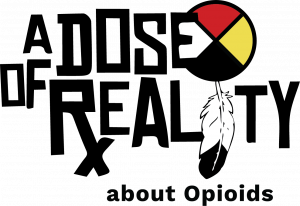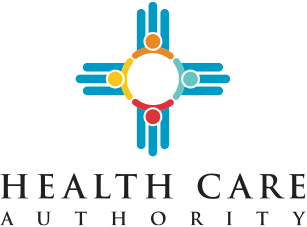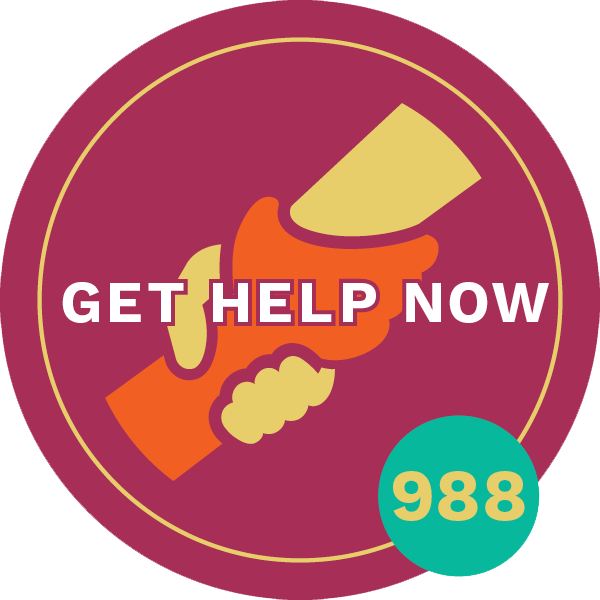Native American Covid-19 Emergency Tool-kit
We will persevere if we protect our community, families and ourselves.
We Are One.
#StoodisNM
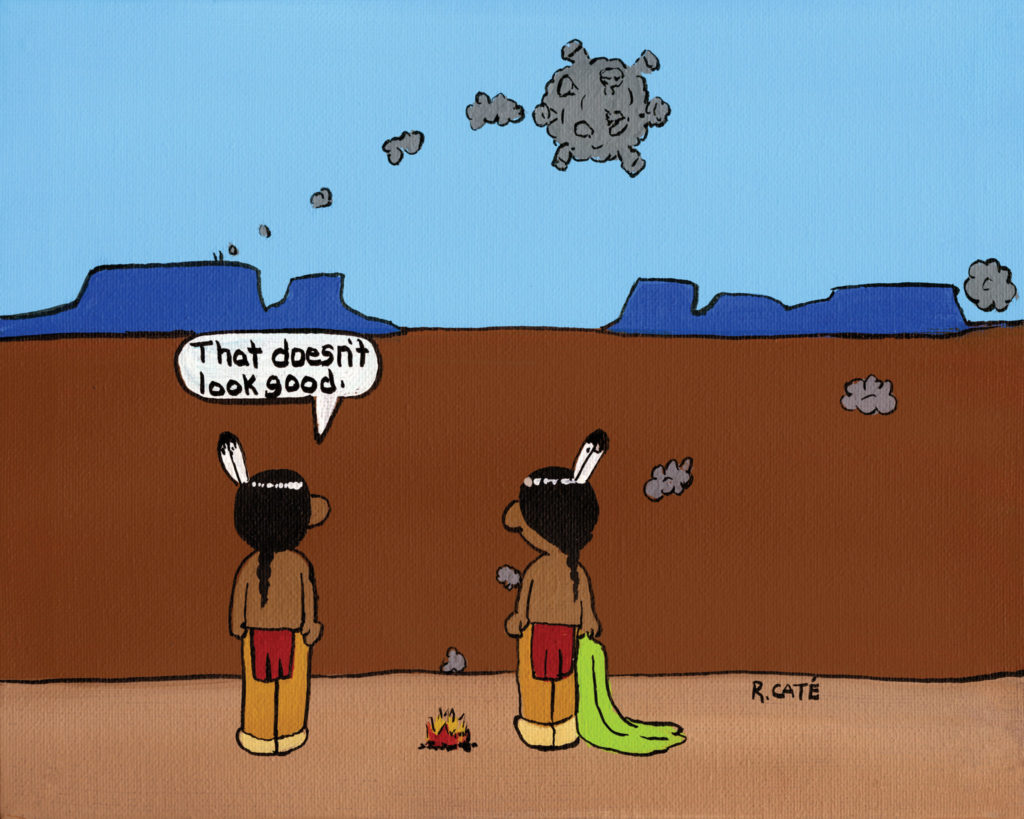
As Native people, we have always been resilient, with strong values and adapted to ensure the safety of our elders, the next generations and to protect our culture and traditions. For our own survival, all of us need to go back to some basic things about relationships. Continue to be the loving, caring, and compassionate people. Be the example of what a good human should be.
Who is at Risk?
Any of us can get COVID-19 because it is spread mainly from person-to-person through coughing, sneezing, touching and close-talking. While we are 11% of the total New Mexico population, our people represent nearly 60% of all COVID-19 cases. Our communities are more vulnerable to COVID-19 because our historic community trauma has caused higher rates of diabetes, asthma, cancer and hypertension.
The disease may be spread by someone who is showing mild symptoms or none at all. Those at risk for serious lung and breathing illness include:
- Our tribal members over 60 years of age.
- Our people with heart disease, lung disease, or diabetes.
What are the Symptoms?
Fever, dry cough, shortness of breath, chills, muscle pain, headache, sore throat, or a loss of taste or smell.
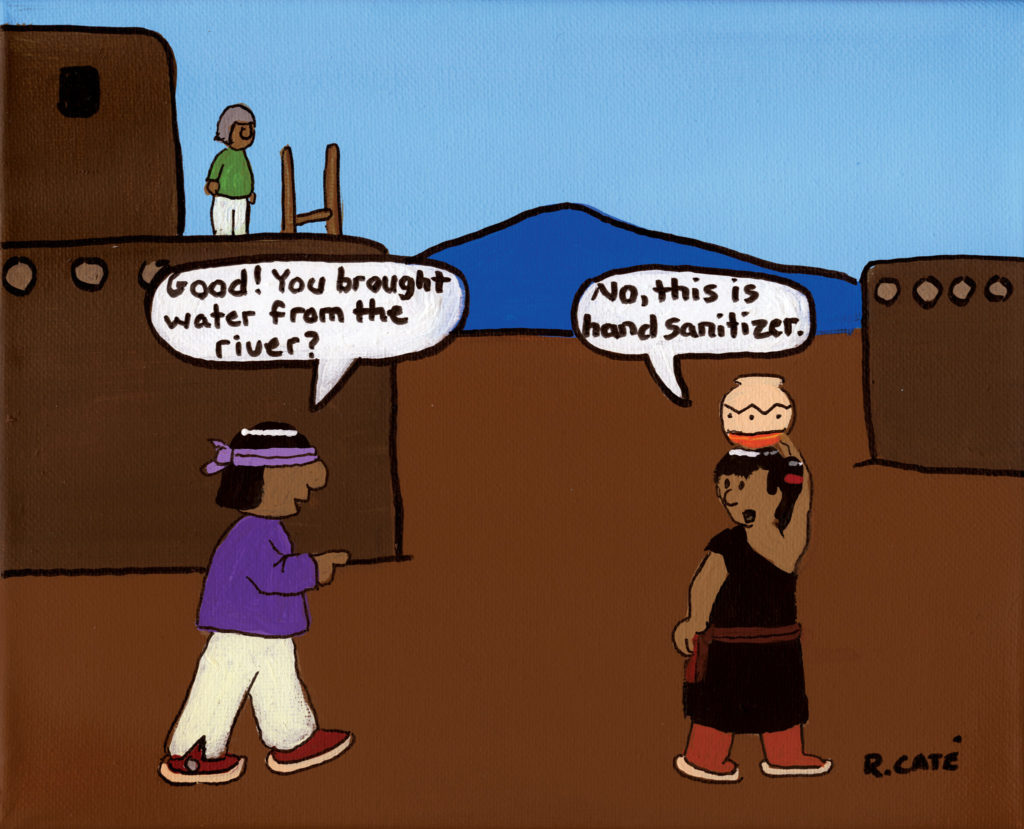
Wash hands with soap often.
Use two wash pans when running water is not available.
One pan is for lathering the soap and one is for rinsing.
Use hand sanitizer.
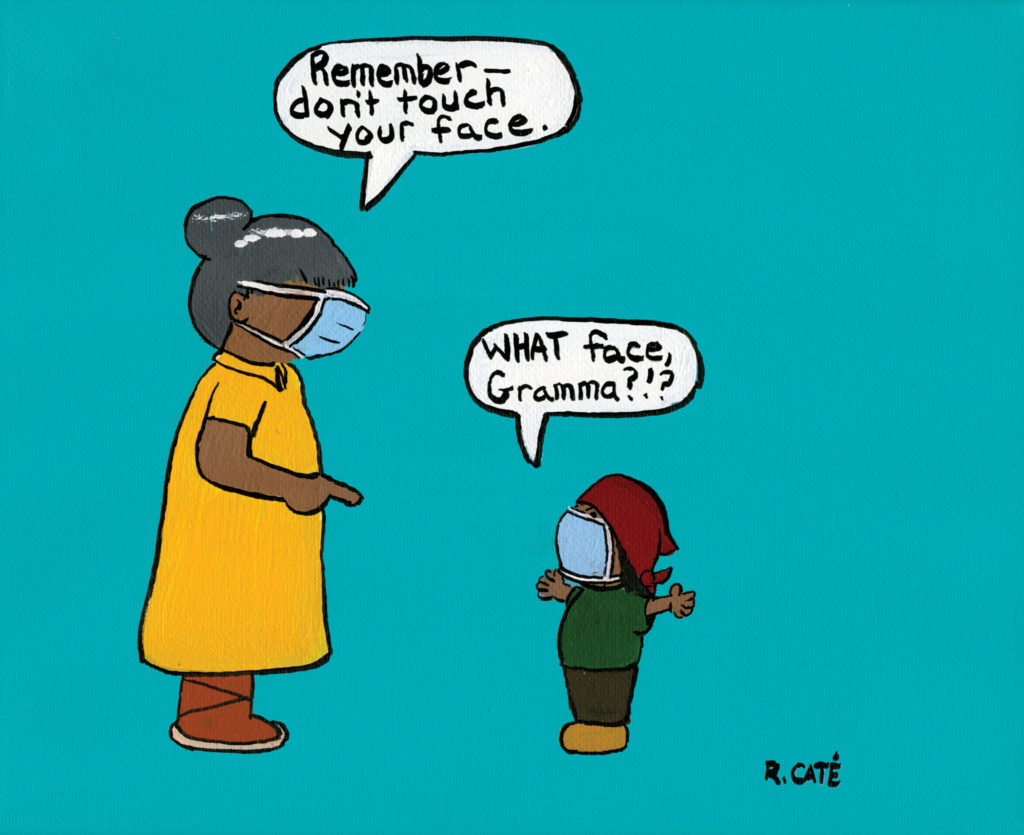
Protect Our Community and Our Family. Stay at Home. Our Creator put us in places for a reason. Practice Social Distancing.
Social distancing means keeping our family at home so we are away from others who may be sick and also to keep from unknowingly getting someone else sick. We all need to add more social distancing space between ourselves.
- Stay home as much as possible.
- When you must go out to shop for family, stay 6 feet or further away from others.
- Avoid gatherings (re: birthdays, graduations, dinners, potlucks, etc.) with other people outside of your household.
- Think outside the box to send your love and congratulations to loved ones in a creative way. Draw a poster.
- Sneeze and cough into a tissue or elbow and not your hands. Throw it away and wash your hands.
- Wear a mask or scarf when around others.
- Avoid touching your eyes, nose, and mouth.
- Wash hands with soap often. Use two wash pans when running water is not available. One pan is for lathering the soap and one is for rinsing. Use hand sanitizer.
- Follow all tribal and state guidelines to the best of your ability.
- Be a good neighbor!
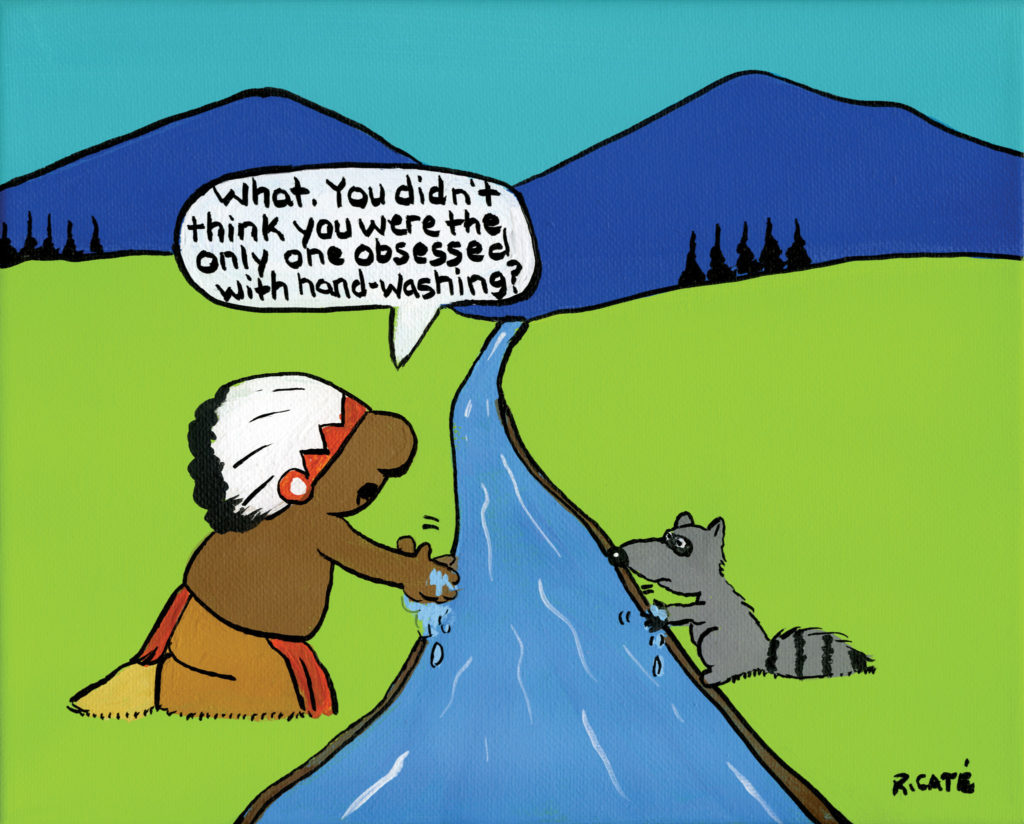
Regularly Clean and Disinfect Your Home
Cleaning on a consistent basis. Encourage the family to keep up with it
- Clean and disinfect the entire house once a day.
- Clean kitchen and bathroom twice a day.
- Wear rubber gloves
- Use 1/3 cup of liquid bleach per 1 gallon of water
- Wipe down frequently touched countertops and tabletops with soap and water before using bleach.
- Pour or spray cleaning solution on a cloth and wipe down frequently touched items like doorknobs, light switches, appliance handles, toilet handles, faucet handles, sinks, phones, remote controls, etc.
- Sanitize cell phones
- Let everything air dry.
- Encourage the family to keep up with it.
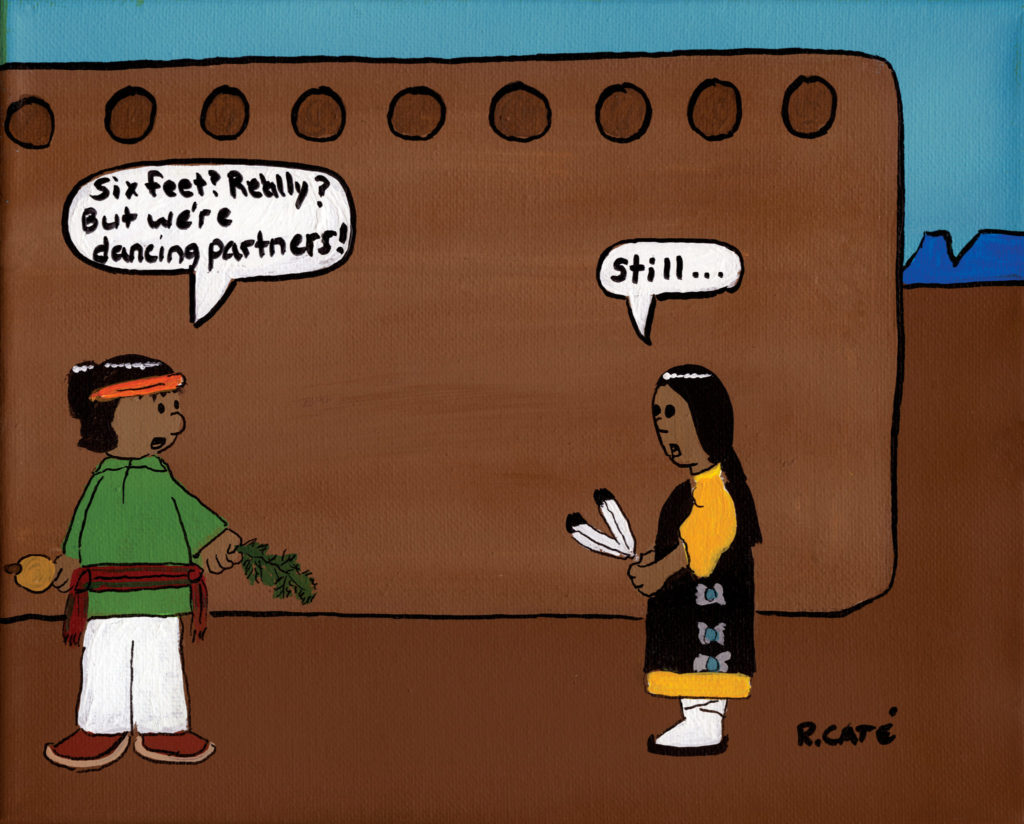
Remembering Our Traditions
We can still practice our traditions and ceremonies, as a household, as an individual prayer, connected straight to the Creator.
- Listen and follow directions of our tribal leadership.
- Greet each other in your native language, sing a song of prayer, point by using your lips (re: ober there), use sign language, or share your wishes for a time when we will get to hug again.
- Make some regalia, dresses, aprons, shirts, moccasins, shawls, and any other cultural elements.
- Gather and use plant medicines for teas
- Call a community member to ask about which plants to look for during this time
- Practice language and prayer
- Smudging
- Sit in silence and reflect
- Bead, make pottery, paint pottery designs, sew, plant, practice speaking your language
- Call a loved one, designate an area to drop off safely prepared food.
- Have a virtual pow wow
- Teach a family member your favorite dance move
- Eat green chile. It’s the best vitamin C.
- Cook traditional nutritional foods
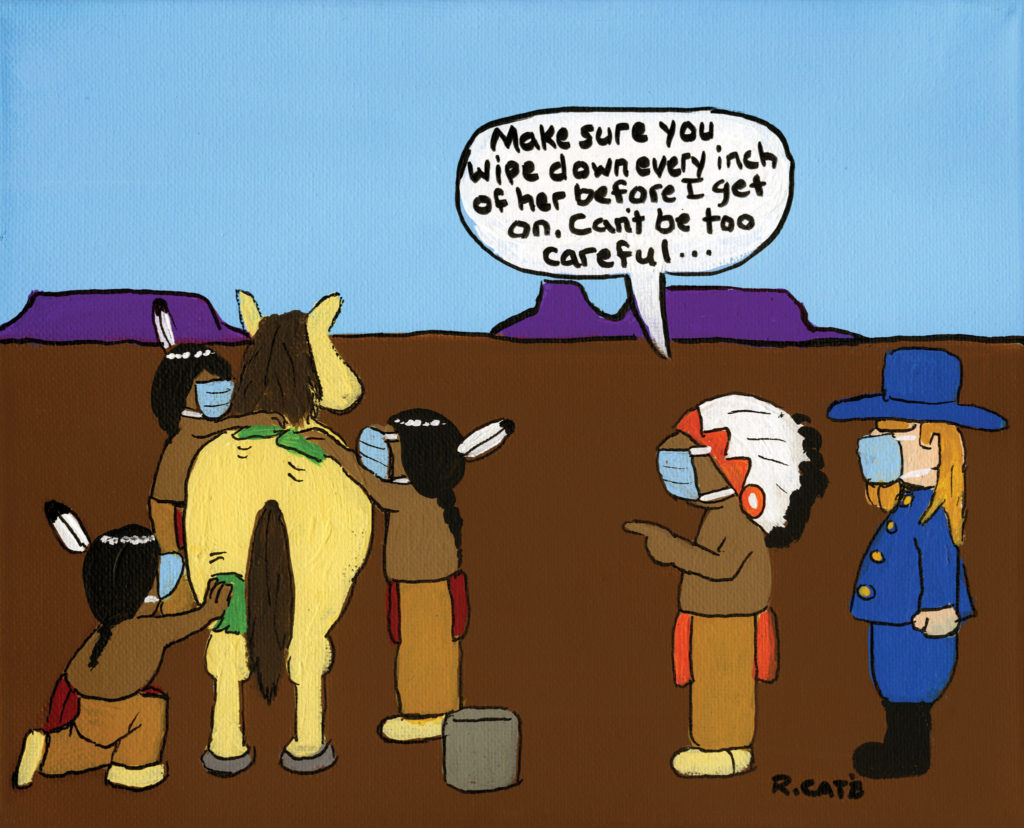
If Someone Gets Sick or May Have Been Around Someone Who is Sick.
- In an emergency call 911.
- Call your healthcare provider or local Indian Health Service Unit as soon as you have any symptoms, especially if you are over 60 or are overweight, diabetic or have heart and lung issues.
- Stay home and distance from others.
- Wash your hands often.
- Do not share food or items like utensils and towels.
- Disinfect shared surfaces and objects often.
- Rest and drink plenty of water.
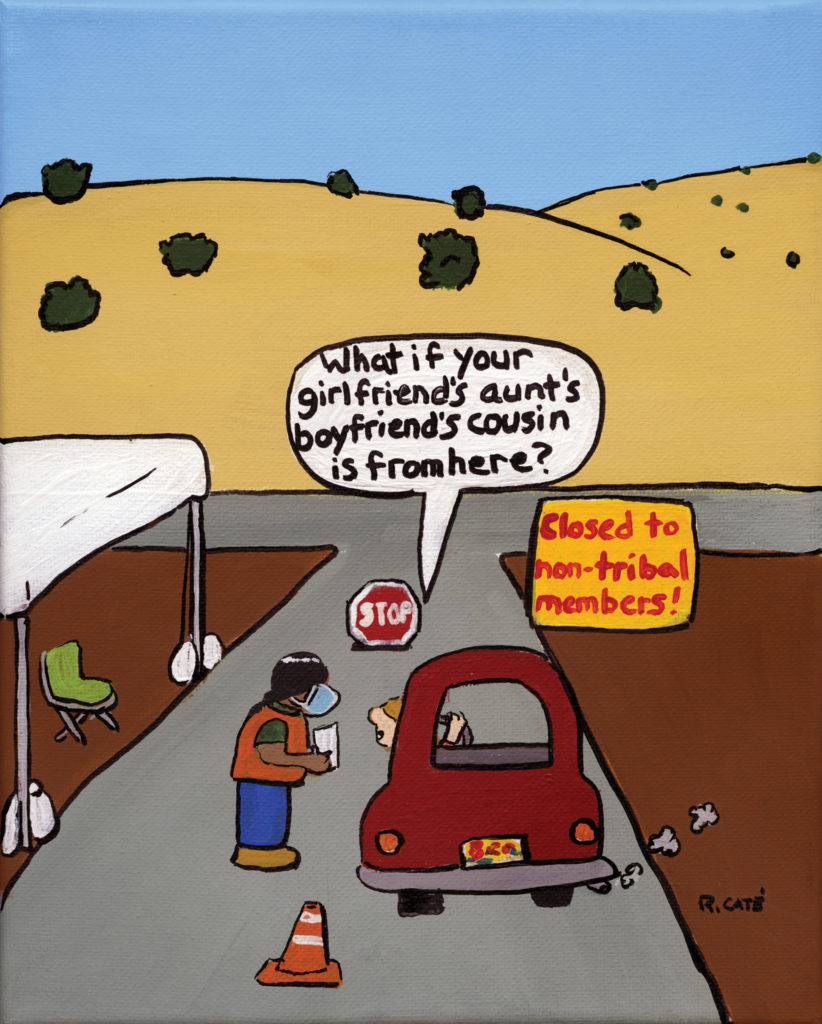
Listen and follow directions of our Tribal Leadership”.
We need strong emphasis on following the rules and ordinances of the tribal leadership for the safety of the people.
For all COVID-19-related updates and public health orders, please visit the NMDOH site: https://cv.nmhealth.org/
For Guidance on Burials, Community Cemeteries, Family Plot Burials and Related Services, visit: https://www.iad.state.nm.us/wp-content/uploads/2020/04/Navajo-Nation-Guidance-on-Burials-and-Related-Services.pdf
We are one.
If a community member is COVID-19 positive, getting tested, a family is in quarantine or wearing masks, be respectful. We are all in this together. The more we all work together, the sooner we can all be together. Respect one another. It’s not our way to single some out. We will persevere if we protect our community, families and ourselves.
For more information please visit doseofreality.com or visit New Mexico’s Indian Affairs Department at https://www.iad.state.nm.us/
Unite. Respect one another. Love one another. We will get through this as one people.
We are one.
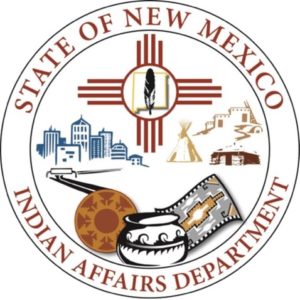
We’re all in this together. And we will get through this together, as one people.
~Lynn Trujillo, Secretary New Mexico Indian Affairs Department
Resources
